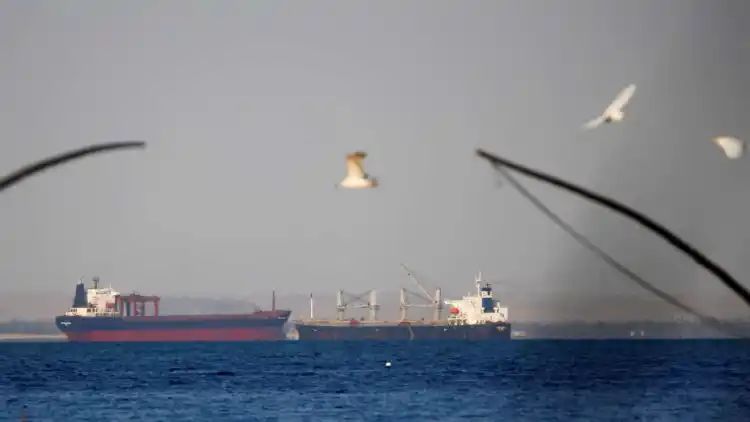Global trade disrupted by Red Sea attacks and Panama Canal drought: IMF

Recent attacks on vessels in the Red Sea region and a severe drought at the Panama Canal have disrupted global trade, causing significant slowdowns and redirections in maritime traffic, according to the IMF.
These disruptions have led to longer delivery times and increased shipping costs, affecting companies worldwide.
According to data from the IMF’s PortWatch platform, trade volume through critical shipping lanes has been notably impacted, posing challenges to supply chains and economic activities.
The attacks on vessels in the Red Sea area have affected traffic through the Suez Canal, a crucial maritime route linking Asia and Europe.
With about 15 per cent of global maritime trade typically passing through this route, the disruptions have forced several shipping companies to divert their vessels around the Cape of Good Hope, resulting in extended delivery times by an average of 10 days or more.
This redirection has particularly hurt companies with limited inventories, exacerbating supply chain challenges.
Simultaneously, the Panama Canal has faced challenges due to a severe drought, prompting authorities to impose restrictions that have significantly reduced daily ship crossings since October last year.
This slowdown in maritime trade through another vital chokepoint, responsible for about 5 per cent of global maritime trade, has further compounded the disruptions in global trade routes.
These developments have caused concerns over prolonged supply chain disruptions and inflationary pressures, as shipping costs surge amidst longer transit times.
Data from the IMF’s PortWatch platform reveals major shifts in trade volume across critical shipping lanes.
The volume of trade passing through the Suez Canal witnessed a staggering 50 per cent year-over-year decline in the first two months of the year, while trade transiting around the Cape of Good Hope surged by an estimated 74 percent above last year’s levels.
Additionally, transit trade volume through the Panama Canal experienced a nearly 32 per cent drop compared to the previous year, indicating the scale of disruption faced by global trade routes.
The impact of these disruptions extends beyond delays in delivery times and increased shipping costs.
The decline in port calls to key regions, such as sub-Saharan Africa, the European Union, and the Middle East, reflects the transitory effects of longer shipping times.
This, coupled with potential delays in recording imports and exports due to rerouted shipments, complicates efforts to gauge the true momentum of global trade and economic activity.
Such challenges may lead to distortions in official statistics on recorded imports and exports, affecting assessments of economic performance and fiscal revenues for affected countries.





